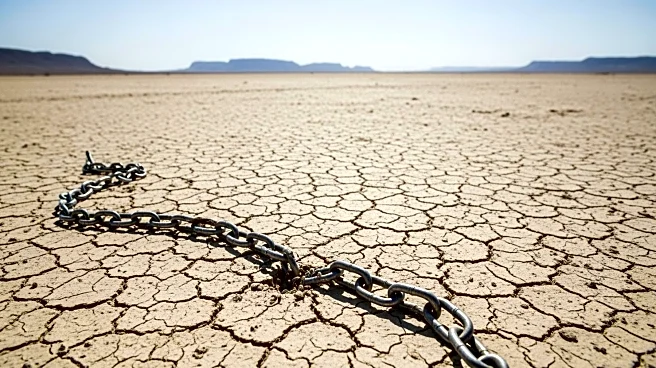What's Happening?
Senior U.S. advisers have stated that Hamas requires more time to recover the remains of hostages still in Gaza, as Israel prepares for the possibility of renewed fighting. The advisers, who have direct
knowledge of the situation, explained that the destruction in Gaza after two years of conflict makes finding and identifying bodies a challenging task. Hamas has handed over 20 living hostages, but only nine of the 28 bodies of slain hostages have been recovered. The situation remains tense as both sides navigate the complexities of the ceasefire agreement and the broader implications for regional stability.
Why It's Important?
The delay in recovering hostages' remains highlights the challenges of post-conflict recovery and reconciliation in Gaza. The situation impacts U.S. foreign policy and its role in Middle Eastern peace efforts, as well as Israel's security strategy. The ongoing presence of armed groups and the lack of a clear disarmament process threaten the fragile ceasefire and could lead to its collapse, affecting millions of civilians in Gaza and potentially leading to broader regional implications.
What's Next?
Efforts to recover hostages' remains and address violations of the ceasefire will continue, involving regional stakeholders and international partners. The U.S. and Israel may increase diplomatic pressure on Hamas to comply with the ceasefire terms. The potential for renewed military action remains if violations persist. Monitoring and enforcement mechanisms will be crucial in maintaining the ceasefire and preventing further escalation.
Beyond the Headlines
The situation in Gaza highlights the challenges of post-conflict recovery and reconciliation in regions with entrenched political and military dynamics. The long-term impact on Gaza's reconstruction and development is significant, as ongoing instability hinders economic recovery and infrastructure rebuilding. The role of international actors in facilitating peace and stability in the region is critical, with implications for broader Middle Eastern geopolitics.









